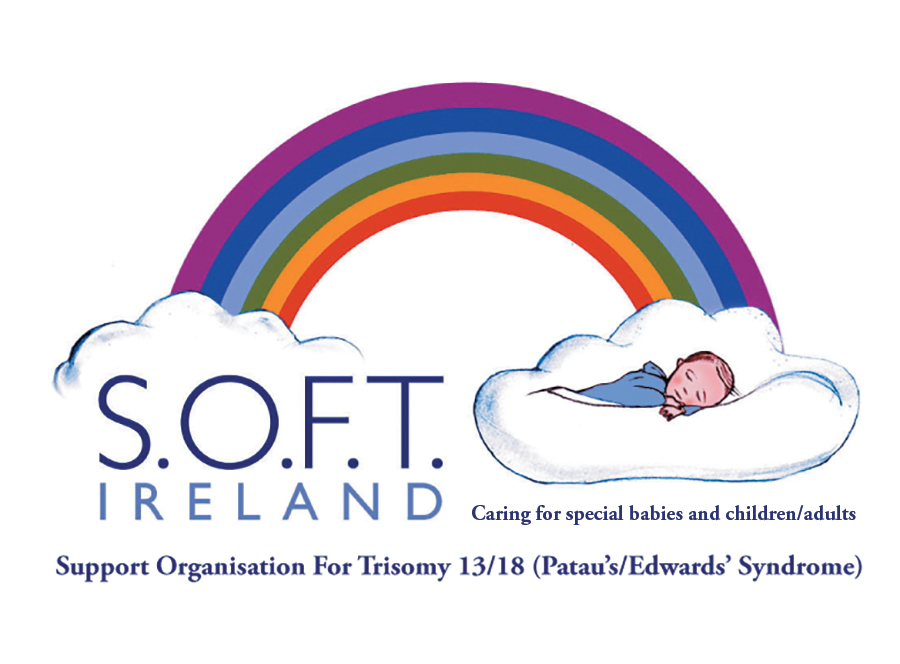Why Our Baby? WHEN YOUR BABY IS BORN
YOUR FEELINGS AT THIS TIME
Parents are understandably upset when a chromosomal disorder is diagnosed. You were looking forward to experiencing the joys of motherhood or fatherhood, and now there are multiple problems to face, along with the threat of your baby’s death hanging over you.
Sometimes, a parent finds it difficult to accept a baby born with a chromosomal disorder. You may feel confused and disappointed and experience a sense of rejection of your new baby. If your baby has obvious abnormalities, your disappointment may be intensified.
It can be difficult to bond with your new son or daughter who seems to bring so many problems and who may not be with you for very long. Parents may also feel guilty for having such feelings and for not welcoming wholeheartedly their son or daughter. Indeed, many mothers of a baby born with a chromosomal disorder say that they feel jealous of mothers of healthy babies born at the same time.
You worry how you will cope if your baby dies. It does not seem right to have to think of death so soon after giving birth. You worry how you will cope if your baby lives. You may fear for her future and wonder what quality of life she will have. You may hope that your baby will die, both for her sake, your own sake, and maybe for the sake of your other children and then feel guilty for having such thoughts.
You may feel apprehensive about your family’s and friends’ reaction to your baby. You may not want them to see her. Your family and friends themselves can often find it difficult to deal with the situation. They will wonder whether to send cards or flowers, buy presents, congratulate you or express their sorrow. It may be difficult to face meeting people for the first time. Some people may not know what has happened and may say the wrong thing. Others may try to avoid you or may pretend nothing has happened for fear of upsetting you.
On the other hand, you may feel joy and hope and delight in this new life. There may be total acceptance of whatever the future may bring for yourself and your baby
But it is okay to feel sad, angry, disappointed etc. It may take time to mourn the loss of the healthy baby of your hopes and dreams and accept your new son or daughter. These are normal feelings. Don’t hesitate to express them to a member of your family, a friend, a mother or father who has experienced the same situation, or to a professional.
It may be useful to read Chapter 10 “A Double Sorrow”.
SEEING YOUR BABY
You may wish to allow some time to pass before you see your baby If you do not feel ready, ask a member of the hospital staff to describe her and to take a photograph, if possible. You may like to see the photograph before you see your baby.
However, consider seeing and holding your baby and getting to know her as soon as possible. If you have been told that your son or daughter may not live very long, try to spend as much time as possible with her. Hold her, talk to her, touch her, get to know her and share the time you have together.
This is your opportunity to make memories with your baby, take lots of photographs, capture these precious moments on video, do hand and foot prints, and introduce the baby to the extended family including siblings. They like to get involved and support you at this difficult time.
YOUR BABY’S NEEDS
Think of your baby as a baby and not as a syndrome.
Families are encouraged and facilitated to have their baby with them at all times following birth. The staff will support you to hold and care for your baby in accordance to his or her needs. Things like food, warmth and comfort are just as important for your baby as with any new born, but you may have to deal with other things such as nasogastric tube feeds, pain relief and oxygen. The children’s doctors and nurses will guide you with every aspect of your baby’s care and their priority is to keep your baby as comfortable and as safe as possible for as long as possible.
Your baby may be able to focus on your face, hear your voice, feel your touch. Be positive and become aware of his/her features: maybe he/she has beautiful fingers or toes, lovely hair etc. If you have other children, he/she may become aware of their presence.
SPIRITUAL SUPPORT
When your baby is born with either Patau’s Syndrome or Edwards’ Syndrome, the overriding message that often comes across from others is that her condition is “incompatible with life” and that there is “no hope.”
No matter what your religious beliefs are, the pastoral care team/hospital chaplaincy or your local cleric can provide valuable support. Remember, he/she probably knows even less than you do about your baby’s condition, and sees your baby as a new life.
Your baby’s birth may bring on feelings of rejection of God and of your religion. This is a very natural reaction and can be discussed with the chaplain or cleric. He/she should be able to offer you support in journeying with you to a deeper understanding of what has happened. He/she will help you to accept your child for the person she is, and through this acceptance, help you see light and God at the end of the tunnel.
